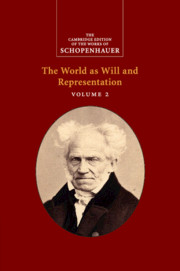Chapter 1 - On the Fundamental View of Idealism
Published online by Cambridge University Press: 30 June 2022
Summary
In endless space countless luminous spheres, around each of which there revolve some dozen smaller, luminous spheres that are hot inside and covered by a hard, cold crust on top of which a film of mildew has generated living beings with cognition – this is the empirical truth, the real, the world. Nonetheless, it is a precarious position for a thinking being to be in, to stand on one of these countless spheres that float freely in boundless space without knowing where it has come from or where it is going; to be only one of innumerable, similar beings who throng, drive and struggle, coming rapidly and ceaselessly into existence and passing away in a time that has neither beginning nor end: nothing is permanent here except matter and the return, by means of particular paths and channels, of the same diversity of organic forms that exist once and for all. All that the 4 empirical sciences can teach is only the more precise nature and rules of these processes. – But recent philosophy, and Berkeley and Kant in particular, has finally realized that all this is really only a phenomenon of the brain and is burdened with so many and such extensive and diverse subjective conditions that its supposed absolute reality disappears, making way for a completely different world order, one that would underlie this phenomenon, i.e. would be to it as the thing in itself is to mere appearance.
‘The world is my representation’ – is, like Euclid's axioms, a claim that everyone must recognize as true as soon as he understands it, even if it is not the sort of thing that everyone does understand as soon as he hears. – To have brought this claim to consciousness and to have connected it to the problemof the relation of the ideal to the real, i.e. the relation of the world in one's head to the world outside of it, this, along with the problem of moral freedom, is the distinguishing characteristic of modern philosophy. Only after people had tried for thousands of years to philosophize in a merely objective way did they discover that first and foremost among the many things that make the world so puzzling and precarious is the fact that, as massive and immeasurable as it may be, its existence nonetheless hangs by a single thread: and that thread comprises the consciousnesses in which it severally exists.
- Type
- Chapter
- Information
- Schopenhauer: The World as Will and Representation , pp. 6 - 22Publisher: Cambridge University PressPrint publication year: 2018

